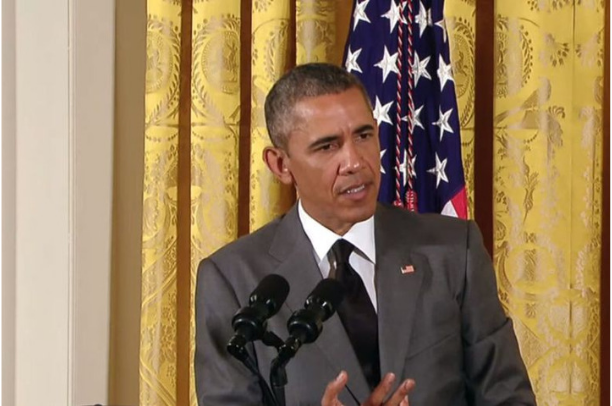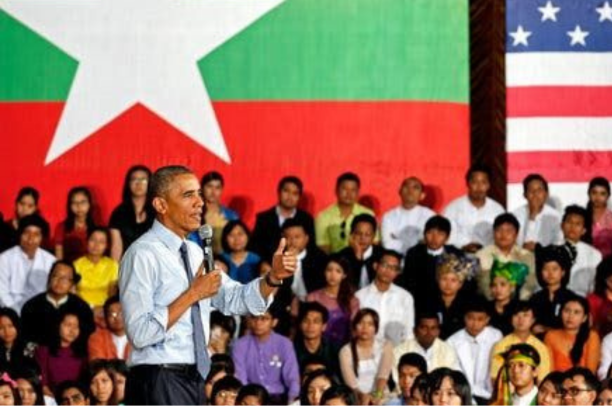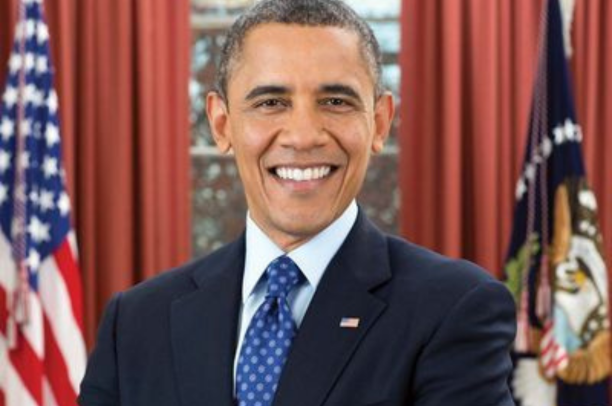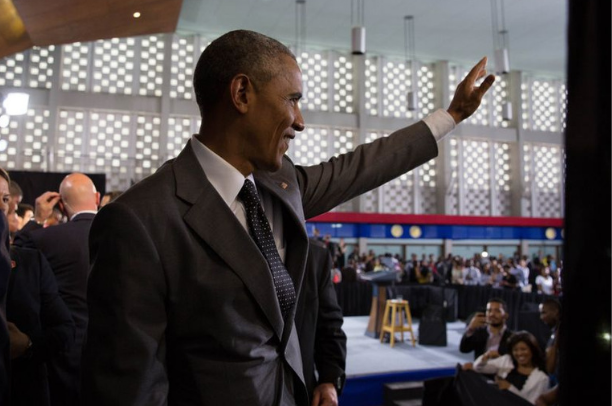Address at the White House Conference on Aging
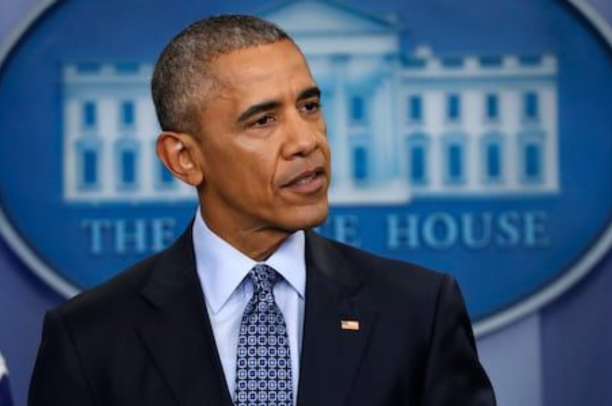
President Obama addressed the White House Conference on Aging, emphasizing the importance of programs like Social Security and Medicare, outlining steps to strengthen retirement security, and calling for greater access to retirement plans.
Want to learn more about storytelling? Start by downloading the first chapter of The Storytelling Mastery.
Hello, everybody. Thank you so much. Thank you. Everybody, please have a seat. Welcome to the White House Conference on Aging, everybody. And please give Vicki a big round of applause for the outstanding work she’s doing to help women and families prepare for retirement.
I want to thank the members of Congress who are here, those in my administration who’ve been working on this issue. I want to especially point out one of my favorite former members of Congress, a legend who’s here today — John Dingell. John, thank you.
To learn more, see the full series: Barack Obama Speeches.
John was elected to Congress when he was just 29 — an over-achiever. Ten years later, he presided over the House chamber for the vote to pass Medicare into law — an achievement for which he and his father can take some credit. Last week, John turned 89 — so we want to wish John a happy birthday. He’s been a retiree for six months, but he’s keeping busy — just check out his Twitter feed if you don’t believe me. So he’s still got some pretty strong opinions.
It is wonderful to be here with all of you. Many of you have devoted your careers to advocating for older Americans. You understand the whole terrain — not just the challenges, but also the opportunities; not only the questions we’re asking today but the questions that we have to start thinking about for tomorrow. And because this conference takes place just once a decade, we’ve got to make it count.
So one of the best measures of a country is how it treats its older citizens. And by that measure, the United States has a lot to be proud of. Medicare, Medicaid, Social Security are some of our greatest triumphs as a nation. When Social Security was signed into law, far too many seniors were living in poverty. When Medicare was created, only a little more than half of all seniors had some form of insurance. Before Medicaid came along, families often had no help paying for nursing home costs. Today, the number of seniors in poverty has fallen dramatically. Every American over 65 has access to affordable health care. And, by the way, since the Affordable Care Act was signed into law, the uninsured rate for all Americans has fallen by about one-third. Just thought I’d mention that.
Together we declared that every citizen of this country deserves a basic measure of security and dignity. That choice saved millions upon millions of our people from poverty, allowed them to live longer and better lives. So we got to be proud of that. These American endeavors didn’t just make our country better, it reaffirmed our greatness as a country. And it’s hard to find a single American whose life hasn’t been enriched by these covenants in some fashion.
My grandmother was a fiercely independent woman. She helped to raise me. She didn’t have a college degree. She worked her way up, working on bomber assembly lines — Rosie the Riveter — during the war, and then went on, got a job as a secretary and then kept on working her way up until she was vice president of a local bank. And after my grandfather died, she chose to live independently. And Medicare and Social Security allowed her to make that choice.
She had the confidence that, having worked hard, played by the rules, she was rewarded with a safe foundation for retirement and she could not fall through those cracks. That was a promise this country made to her and all its citizens. And as a grateful grandson — who happens to be President — that is a promise I’m going to make sure we’re going to keep for future generations. We’ve got to make sure that it’s there for people who are working today.
But we’re going to have work for it. We have to work to do more to ensure that every older American has the resources and the support that they need to thrive. That challenge — protecting our seniors, dealing with the rising costs of an aging generation, ensuring we have enough home care workers looking out for our family members — maximizing the contributions that older Americans can make to our country — these challenges are just becoming more urgent.
And here’s why. When we won World War II, everyone came home and had babies. I mean, not literally, everyone, but a lot of people had babies. And now, each and every day, almost 10,000 of those babies turn 65 years old. So more than 250,000 Americans turn 65 every month. They’re living longer and they’re living healthier. We’re seeing people break athletic records in their 60s.
Diana Nyad is here today, by the way. You do not want to race her in anything. Arguably the toughest justice on the Supreme Court is the oldest — Ruth Bader Ginsburg — also known as the Notorious R.B.G. She’s tough.
In just about every field, Americans who once might have been dismissed as out of touch or past their primes are making vital contributions in every field. And all of us, as a consequence, are able to raise our own ambitions about what we hope to achieve in our golden years. And since I’m living out dog years here in the presidency — this is something I’m paying a lot of attention to. Look at this hair. Although I do have hair. Crowley was laughing a little bit too much over here.
So since these golden years are coming pretty fast, I want to make sure that we briefly focus on what we’ve done to strengthen already Medicare, and take a longer look at what we have to do to strengthen retirement even more.
Now, we’re often told that Medicare and Social Security are in crisis. We hear that all the time. And usually, that’s used as an excuse to try to cut spending on those bedrock programs. But here’s the truth. Medicare and Social Security are not in crisis, nor have they kept us from cutting our deficits by two-thirds since I took office. Both programs are facing challenges because of the demographic trends I just talked about. And for Medicare, that means we’ve got to keep slowing the growth of health care costs, and keep building on the progress we’ve already made in the past few years.
Since I signed the Affordable Care Act — also known as Obamacare — since we signed the ACA into law, we’ve extended the life of the Medicare Trust Fund by 13 years. We’re moving Medicare towards payment models that require quality of care instead of quantity of care as the measure of what you get paid, creating a different set of incentives. And that’s something that will keep older Americans healthy and Medicare healthy as well. What’s more, this law has saved over 9 million people on Medicare currently more than $15 billion on their prescriptions.
Now, that doesn’t get a lot of notice, but I want everybody to understand. Built into the Affordable Care Act, 9 million seniors have gotten significant discounts on their prescription drugs. They don’t always know that it’s because of Obamacare, but that’s why they’ve been paying cheaper drug prices. It’s also given nearly 40 million people on Medicare free preventive health services. And we’ve expanded the options for home- and community-based services offered by Medicaid, which means that more older Americans are able to make the same choice that my grandmother did and live independently.
So those are some areas we’ve made progress. And Sylvia Burwell, who’s here, our Secretary of Health and Human Services, I’m sure at some point during this conference will be talking about additional steps that we need to be taking to further improve a delivery system.
And understand, the goal here is not to cut back on services. The goal is to make sure that you’re getting more of the services that you need, less of the services you don’t, so you’ve got more money left over to do even more stuff that you need to keep you healthy and active and thriving. Because we have too much waste in the system that’s not benefitting patients, but oftentimes just has to do with a really inefficient system or, in some cases, works really well for providers but doesn’t work well for the consumer.
Now, even as we’re dealing with the health care side, we also know that too many older Americans leave the workforce without having saved enough for a dignified retirement. And it’s not as if they haven’t tried — Vicki touched on this issue. There are a lot of folks out here who work really, really hard, but at the end of the day just still don’t have enough of a nest egg. In today’s economy, preparing for retirement has gotten tougher.
First of all, most workers don’t have a traditional pension — what we used to understand as a defined benefit pension where you were guaranteed a certain amount every year once you retired. A Social Security check on its own oftentimes is not enough. And even though, as a consequence of some of the steps that we took, we pulled ourselves out of a terrible financial crisis and the stock market has now doubled since I took office — which means that it’s replenished the 401(k)s for millions of families — so that’s been important for millions of families across the country, but a lot of people don’t have any kind of retirement account at all.
So we’re going to have to work hard to deal with these issues. Number one, we have to keep Social Security strong, protecting its future solvency. And I think there are ways, creative ways that people are talking about to protect its future solvency, but also strengthen retirement security for our most vulnerable neighbors. So that’s step number one.
Step number two — for Americans who are doing the hard work of saving for retirement, let’s make sure that they get a fair deal. Earlier this year, I announced new steps we’re taking to protect Americans by cracking down on conflicts of interest in retirement advice. The goal here is to put an end to Wall Street brokers who benefit from backdoor payments or hidden fees at the expense of their clients. If they are advising you on how to save your money, they should be looking out for you — not for somebody who’s selling a product that may not be best for you. And for the many brokers out there who are doing the right thing, this rule levels the playing field for them and their customers. The notion here is, is we want to make sure responsibility is rewarded and not exploited. So there’s a consumer protection element to this whole thing.
Number three — we’ve got to make it easier for people to save for retirement. And today, I’m pleased to announce an important step that we’re taking to do just that. Right now, about one-third of American workers do not have access to a retirement plan at work — one-third. That’s why every budget request I’ve submitted since taking office has included a common-sense proposal to automatically enroll workers without access to a workplace retirement plan in an IRA, which would provide an additional 30 million Americans with access to a retirement plan at work.
Now, unfortunately, Congress has repeatedly failed to act on this idea. The good news is states are stepping up -– just like they’re stepping up in other areas where Congress is not doing its work, like raising the minimum wage or making paid sick leave available for working families. So far, a handful of states have passed laws to create new ways for people without a workplace plan to save for retirement. And more than 20 states are thinking about doing the same.
We want to do everything we can to encourage more states to take this step. So I’ve called on the Department of Labor and Tom Perez to propose a set of rules by the end of the year to provide a clear path forward for states to create retirement savings programs. And if every state did this, tens of millions more Americans could save for retirement at work.
I want to emphasize this point. It is perverse that in this country it is just easier to save if you’ve already got money. And I’m talking about not just the fact that you’ve got money to save; I’m talking about just the mechanics, the mechanisms of being able to save, and then take advantage of the tax benefits of saving. So if we can just make sure that everybody, even if your employer doesn’t provide those mechanisms, you still have a way of accessing it, every dollar you put in, that’s going to be a dollar that also then benefits from the same kinds of tax advantages that somebody with a million dollars is able to take advantage of all the time.
And that’s just fair. That’s only fair. And that’s all we’re trying to do here, is make sure that if you’re working hard out there, even if you’re not making goo-gobs of money and don’t have fancy financial advisors and all that, that you can still put away a little nest egg so that you’re protected when you get older.
So this is just one of a number of steps that we’re going to be taking to improve the lives of older Americans. As many of you know, over the past year, we’ve held regional forums with AARP across the country, heard lots of ideas from people, including folks in this room, about how we can make things better — especially for families and caregivers. So we’re going to be moving ahead with several of the ideas that you’ve given us.
For example, we’re going to make it easier for folks who are homebound to get nutritional assistance. We’re going to update quality and safety requirements for thousands of nursing homes — the first major overhaul in nearly 25 years. We’re going to train more prosecutors in how to combat elder abuse. We’re going to work with Congress to reauthorize the Older Americans Act — because we know it will provide critical support to families and communities.
We’re going to help federal workers and their supervisors better understand how our policies on workplace flexibility can support employees who are also caregivers to aging parents. That’s important. And I’m going to keep fighting to make family leave and workplace flexibility available to every American, no matter where they work. It’s the right thing to do.
Every study shows that the kind of workplace flexibility we’re talking about isn’t just good for the employees; ultimately, it ends up being good for the employers, because you get more loyal, more productive employees with less turnover. And it’s the right thing to do. And with the technologies that we have today, there’s no reason why we can’t make this happen.
So this year, we mark the 80th anniversary of Social Security. We mark the 50th anniversary of Medicare. We’ve grown so accustomed to these programs being a part of American life — these bedrock, foundation stones of our society — sometimes it’s easy to forget how revolutionary they were at the time. They were hard to get done. When FDR tried to pass Social Security, critics called it “socialism.” When President Kennedy and President Johnson — and the Dingells — worked to create Medicare, cynics raised the alarm about government takeover of health care. And now we’ve got signs saying, “Get your government hands off of my Medicare.”
The point is change has always been hard. Detractors always are trying to maximize people’s fear of the unknown. But ultimately, hope triumphs over fear. We choose to do big things here in America. Like I said a couple weeks back — three generations ago, we chose to end the era where seniors were left to languish in poverty. Two generations ago, we chose to end an age when Americans in their golden years didn’t have the guarantee of health care. This generation, we chose to go even further, and now health care in America is more affordable and available than ever before.
In this anniversary of those incredible achievements, we need to recommit ourselves to finishing the work that earlier generations began– make sure this is a country that remains one where no matter who you are or where you started off, you’re treated with dignity, your hard work is rewarded, your contributions are valued, you have a shot to achieve your dreams whatever your age.
That’s the America we’re all working for. And I’m proud to work alongside you.
Thank you so much. Congratulations. Have a wonderful conference.
Thank you.
Want to learn more about storytelling? Start by downloading the first chapter of The Storytelling Mastery.
